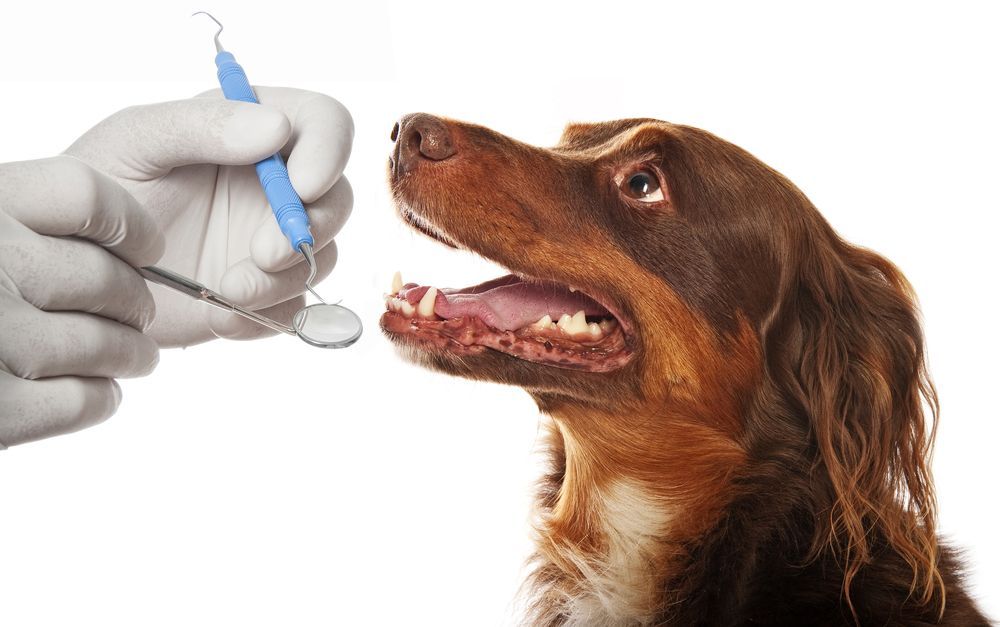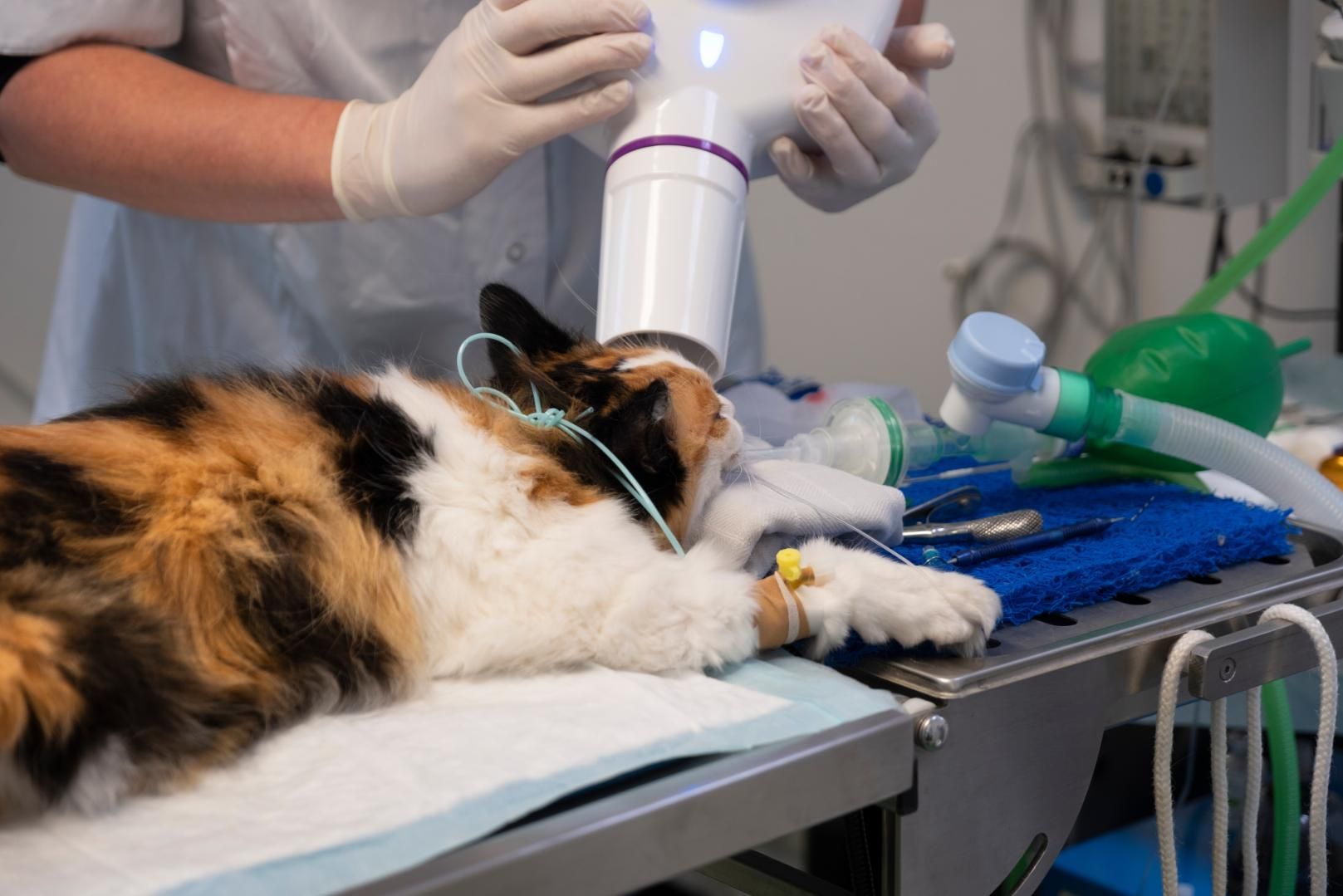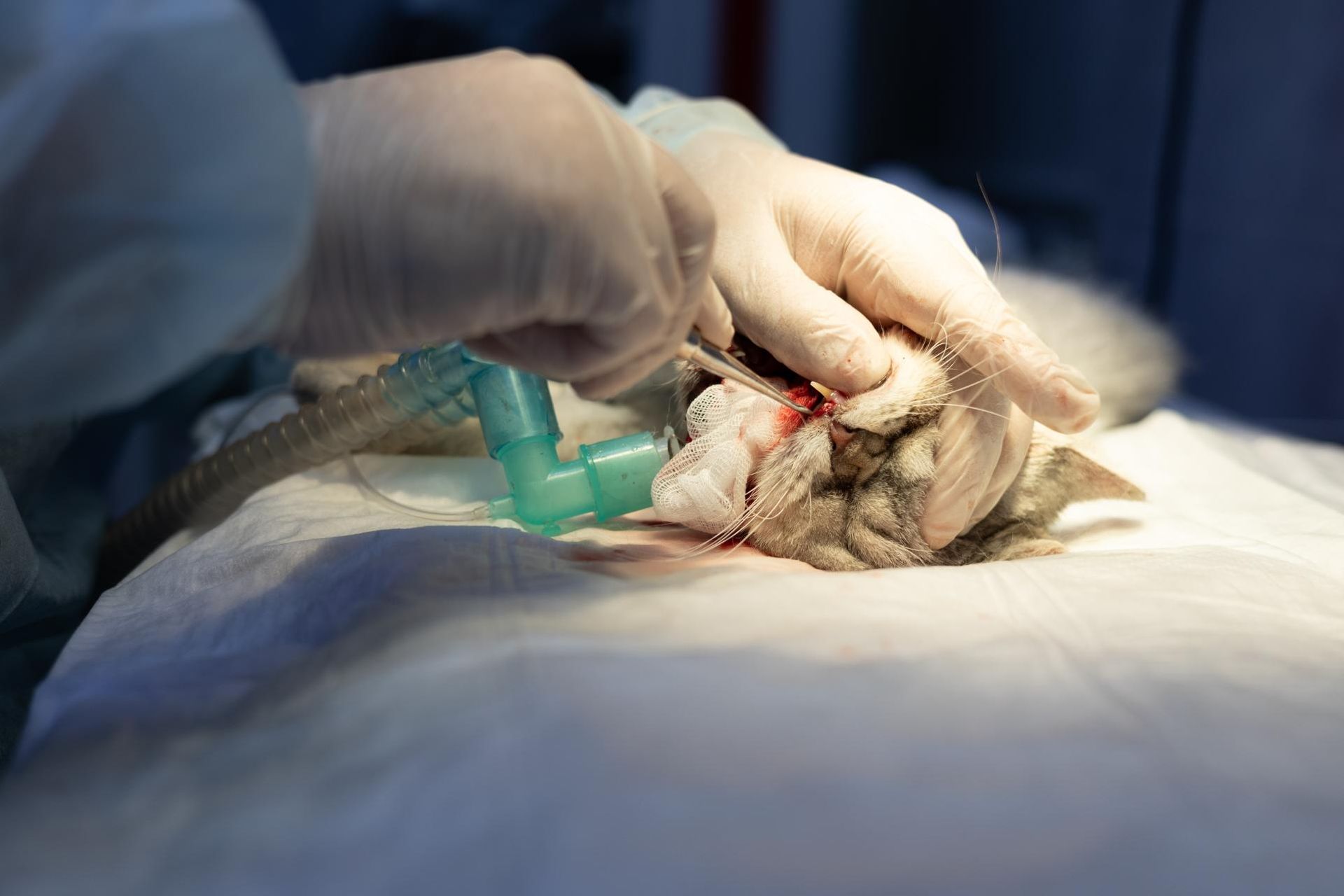preventative Pet dental care in Diamond Beach
offering comprehensive dentistry
At Diamond Beach Veterinary Clinic on the Mid North Coast, we offer comprehensive pet dental care services designed to support teeth and gum health. Our services include routine teeth cleanings, thorough dental check-ups and treatments for conditions like gum disease and tooth decay, which are especially beneficial for older pets or breeds prone to dental issues.
Regular dental care can help reduce the risk of painful infections, bad breath and other health concerns that arise from poor oral hygiene. By addressing dental issues early, pets can enjoy greater comfort and better long-term health.
Our team is here to discuss any questions or concerns about your pet’s dental care, offering consultation times to talk through the best options. We strive to create a comfortable and supportive environment, making each visit as smooth as possible for pets and their owners.
Pet dental care is one of the many services we provide, along with preventive health care, surgeries and nutritional guidance. To learn more about pet dental care or to schedule an appointment, please contact Diamond Beach Veterinary Clinic on (02) 6559 2277.
equine dental care
Equine dental care is important for maintaining a horse’s health, comfort and ability to eat effectively.
Horses’ teeth grow continuously, and uneven wear can lead to sharp points, which may cause pain, difficulty chewing and even digestive issues. Regular dental exams help identify these concerns early, allowing for corrective care like floating (filing down sharp edges) to improve the horse’s bite and oral comfort.
Routine dental care can also reduce the risk of gum disease and tooth decay, which can impact overall health. Professional equine dental services support a balanced, pain-free mouth and can contribute to better overall wellbeing.
scale & polish
A scale and polish is a common dental procedure that helps maintain pet oral health by removing plaque and tartar buildup.
Plaque accumulates naturally and, if not removed, hardens into tartar, which can lead to gum disease, tooth decay and bad breath. During a scale and polish, the vet carefully scales away tartar from teeth surfaces and along the gumline, followed by polishing to smooth the teeth, making it harder for plaque to reattach.
This process can not only improve oral hygiene but also reduce the risk of painful infections and other dental problems, supporting a pet’s overall health and comfort.
pet dental x-Rays
Pet dental X-rays are a diagnostic tool that can allow veterinarians to assess the health of teeth and surrounding structures beneath the gumline.
Often, issues such as tooth root infections, fractures and bone loss are not visible during a standard dental exam. Dental X-rays provide detailed images of each tooth’s root and surrounding bone, helping detect these hidden problems early.
By identifying issues beneath the surface, veterinarians can make informed decisions about extractions, treatments or preventive care.
Routine dental X-rays play an important role in comprehensive pet dental care, helping to ensure that any underlying issues are addressed promptly for long-term health.
damaged or infected tooth Extractions
Dental extractions are sometimes necessary to protect a pet’s overall health and help relieve pain caused by damaged or infected teeth.
Common reasons for extraction include severe tooth decay, fractures or advanced periodontal disease, which can lead to discomfort, infections and difficulty eating. The procedure involves removing the affected tooth under anaesthesia, aiming to reduce the risk of further infection or complications.
After extraction, pets usually experience relief, and their gums can heal quickly with proper care. Veterinary guidance on post-extraction care, such as soft foods and monitoring, helps ensure a smooth recovery.
Extractions support long-term oral health and overall wellbeing for pets.
Frequently Asked Questions
-
Why is dental care important for my pet?
Dental care is essential for helping to prevent issues like gum disease, tooth decay and bad breath. Regular dental check-ups support your pet’s overall health and comfort, often reducing the risk of painful infections.
-
How often should my pet have a dental check-up?
It’s generally recommended that pets have a dental check-up at least once a year. Regular exams help monitor dental health and allow for early treatment if any issues are detected.
-
What are signs my pet may need dental care?
Common signs of dental issues in pets include bad breath, difficulty eating, drooling or red and swollen gums. If you notice any of these signs, it’s a good idea to consult a veterinarian.
-
How can I help maintain my pet’s dental health at home?
Brushing your pet’s teeth, providing dental chews and offering a balanced diet can support oral health between dental check-ups. Regular at-home care helps reduce plaque buildup and keeps your pet’s teeth cleaner.
Partners
Site links
About us
Services
House calls
pet care
animals
Trading Hours
- Monday
- -
- Tuesday
- -
- Wednesday
- -
- Thursday
- -
- Friday
- -
- Saturday
- Closed
- Sunday
- Closed
Weekends and Public Holidays
Emergencies only
Contacts
T. 02 6559 2277
ABN: 22 676 660 138
Qualified Vets
Accredited Nurse
RVN
AVN
CIV VN
TAE
Australian Veterinary Association
Veterinary Nurses Council of Australia
2023 Localsearch Certificate of Trust









